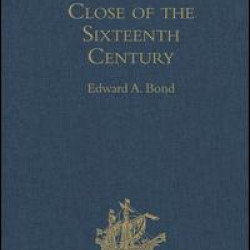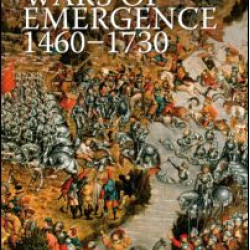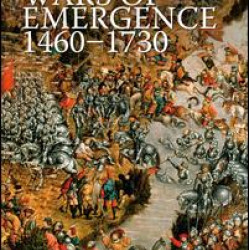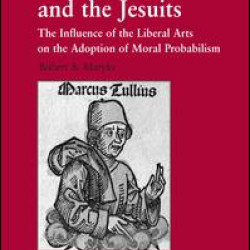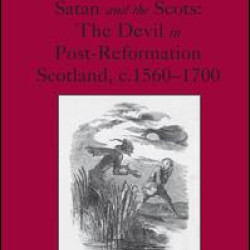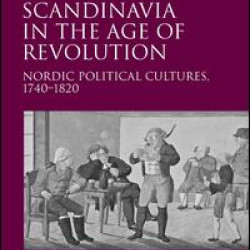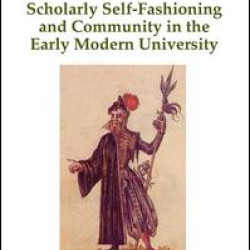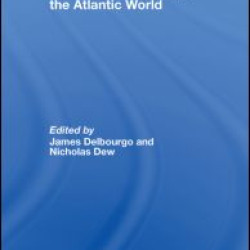Early Modern History 1500-1750
Brand: Taylor & Francis
Model: Stock
In 1795 William Roscoe (1753-1831) published a biography of Lorenzo de' Medici, which proved so popular that it prompted claims that Roscoe had effectively invented the Italian Renaissance as it has been known by subsequent generations of readers in the English-speaking world. Despite such enthusias..
₹2,643.10 ₹3,303.88
Brand: Taylor & Francis
Model: Stock
In this book, the role of royalist agents, spies and conspirators is uncovered and examined. Shifting the traditional focus of attention from royal ministers, councillors, and generals, to a cadre of loyal, resourceful and courageous agents several rungs lower down in the hierarchy of the king's sup..
₹8,812.80 ₹11,016.00
Brand: Taylor & Francis
Model: Stock
Analysing the make-up and workings of the Royalist party in Scotland and Ireland during the civil wars of the mid-seventeenth century, Robertson is the first to provide a major study exploring who Royalists were in these two countries and why they gave their support to the Stuart kings. It compares ..
₹8,812.80 ₹11,016.00
Brand: Taylor & Francis
Model: Stock
Russia at the Close of the Sixteenth Century..
₹3,083.74 ₹3,854.68
Brand: Taylor & Francis
Model: Stock
Russia’s emergence as a Great Power in the eighteenth century is usually attributed to Peter I’s radical programme of ‘Westernising’ reforms. But the Russian military did not simply copy European armies. Adapting the tactics of its neighbours on both sides, Russia created a pow..
₹2,789.98 ₹3,487.48
Brand: Taylor & Francis
Model: Stock
Russia’s emergence as a Great Power in the eighteenth century is usually attributed to Peter I’s radical programme of ‘Westernising’ reforms. But the Russian military did not simply copy European armies. Adapting the tactics of its neighbours on both sides, Russia created a pow..
₹7,711.20 ₹9,639.00
Brand: Taylor & Francis
Model: Stock
Over the past decade various historians have examined the consequences of Ignatius Loyola's decision to involve his newly approved Society of Jesus in various educational enterprises. The first Jesuits emphasized the importance of spiritual conversation, preaching, and reconciliation, horizontally a..
₹8,812.80 ₹11,016.00
Brand: Taylor & Francis
Model: Stock
Frequent discussions of Satan from the pulpit, in the courtroom, in print, in self-writings, and on the streets rendered the Devil an immediate and assumed presence in early modern Scotland. Exploring what it meant to live in a world in which Satan’s presence was believed to be, and indeed, perceive..
₹8,812.80 ₹11,016.00
Brand: Taylor & Francis
Model: Stock
The 'Age of Revolution' is a term seldom used in Scandinavian historiography, despite the fact that Scandinavia was far from untouched by the late eighteenth-century revolutions in Europe and America. Presenting the latest research on political culture in Scandinavia, this volume with twenty-seven c..
₹8,445.60 ₹10,557.00
Brand: Taylor & Francis
Model: Stock
A greater fluidity in social relations and hierarchies was experienced across Europe in the early modern period, a consequence of the major political and religious upheavals of the sixteenth and seventeenth centuries. During this time university scholars demonstrated a great energy when characterizi..
₹8,812.80 ₹11,016.00
Brand: Taylor & Francis
Model: Stock
Science and Empire in the Atlantic World is the first book in the growing field of Atlantic Studies to examine the production of scientific knowledge in the Atlantic world from a comparative and international perspective. Rather than focusing on a specific scientific field or single national context..
₹8,812.80 ₹11,016.00
Brand: Taylor & Francis
Model: Stock
Science and Empire in the Atlantic World is the first book in the growing field of Atlantic Studies to examine the production of scientific knowledge in the Atlantic world from a comparative and international perspective. Rather than focusing on a specific scientific field or single national context..
₹2,055.58 ₹2,569.48





